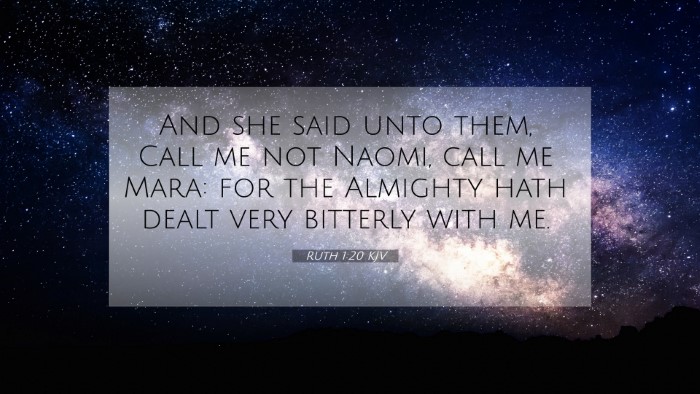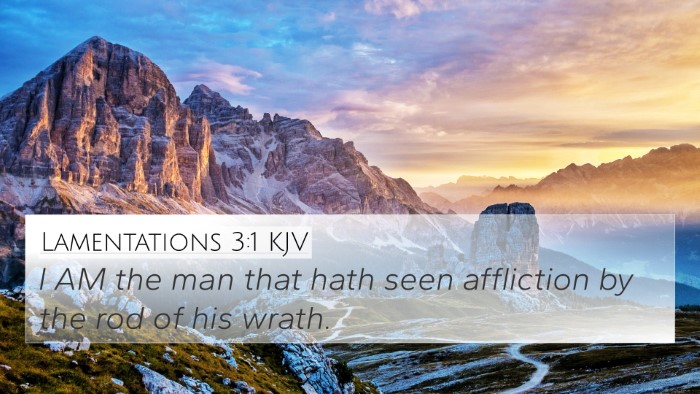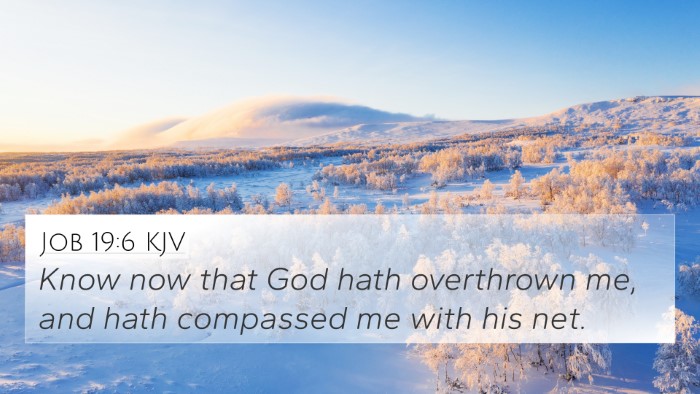Old Testament
Genesis Exodus Leviticus Numbers Deuteronomy Joshua Judges Ruth 1 Samuel 2 Samuel 1 Kings 2 Kings 1 Chronicles 2 Chronicles Ezra Nehemiah Esther Job Psalms Proverbs Ecclesiastes Song of Solomon Isaiah Jeremiah Lamentations Ezekiel Daniel Hosea Joel Amos Obadiah Jonah Micah Nahum Habakkuk Zephaniah Haggai Zechariah MalachiRuth 1:20 Similar Verses
Ruth 1:20 Cross References
And she said unto them, Call me not Naomi, call me Mara: for the Almighty hath dealt very bitterly with me.
Uncover the Rich Themes and Topics of This Bible Verse
Listed below are the Bible themes associated with Ruth 1:20. We invite you to explore each theme to gain deeper insights into the Scriptures.
Ruth 1:20 Cross Reference Verses
This section features a detailed cross-reference designed to enrich your understanding of the Scriptures. Below, you will find carefully selected verses that echo the themes and teachings related to Ruth 1:20 KJV. Click on any image to explore detailed analyses of related Bible verses and uncover deeper theological insights.
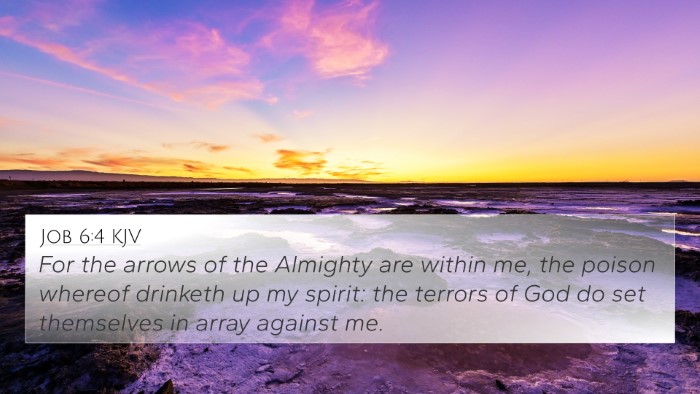
Job 6:4 (KJV) »
For the arrows of the Almighty are within me, the poison whereof drinketh up my spirit: the terrors of God do set themselves in array against me.
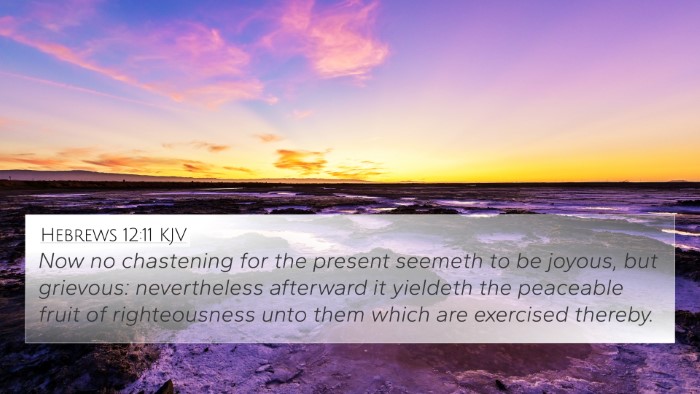
Hebrews 12:11 (KJV) »
Now no chastening for the present seemeth to be joyous, but grievous: nevertheless afterward it yieldeth the peaceable fruit of righteousness unto them which are exercised thereby.
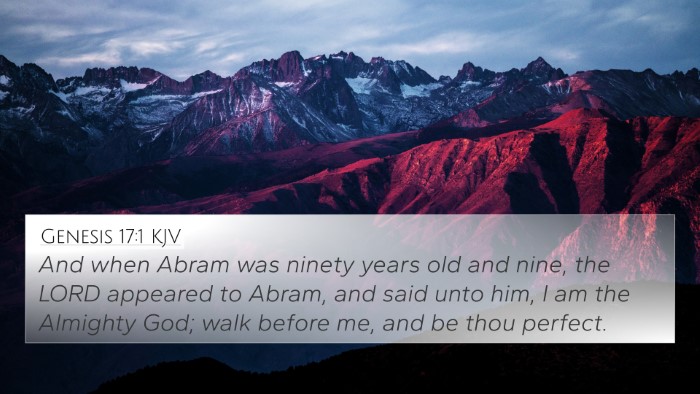
Genesis 17:1 (KJV) »
And when Abram was ninety years old and nine, the LORD appeared to Abram, and said unto him, I am the Almighty God; walk before me, and be thou perfect.
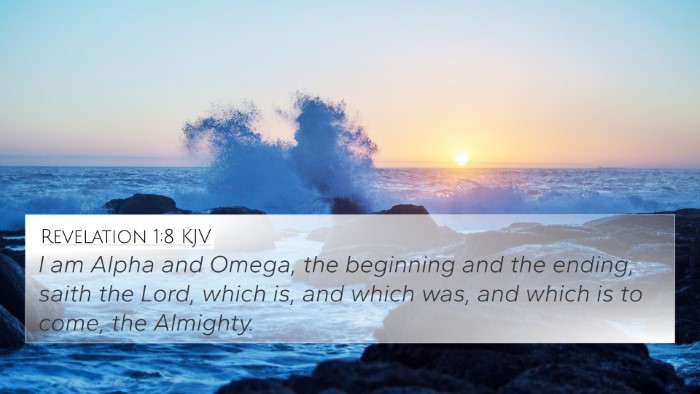
Revelation 1:8 (KJV) »
I am Alpha and Omega, the beginning and the ending, saith the Lord, which is, and which was, and which is to come, the Almighty.

Isaiah 38:13 (KJV) »
I reckoned till morning, that, as a lion, so will he break all my bones: from day even to night wilt thou make an end of me.
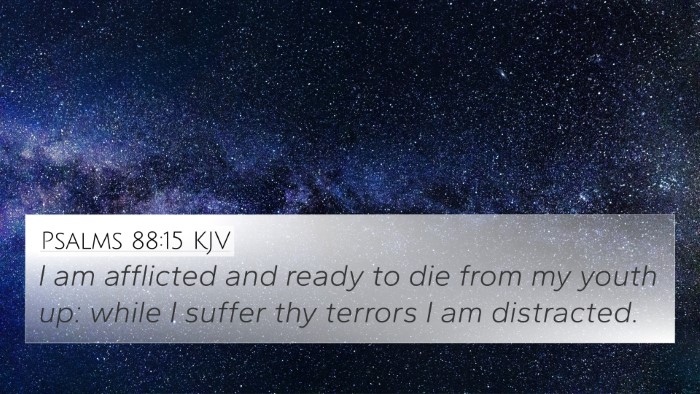
Psalms 88:15 (KJV) »
I am afflicted and ready to die from my youth up: while I suffer thy terrors I am distracted.

Job 11:7 (KJV) »
Canst thou by searching find out God? canst thou find out the Almighty unto perfection?

Job 5:17 (KJV) »
Behold, happy is the man whom God correcteth: therefore despise not thou the chastening of the Almighty:
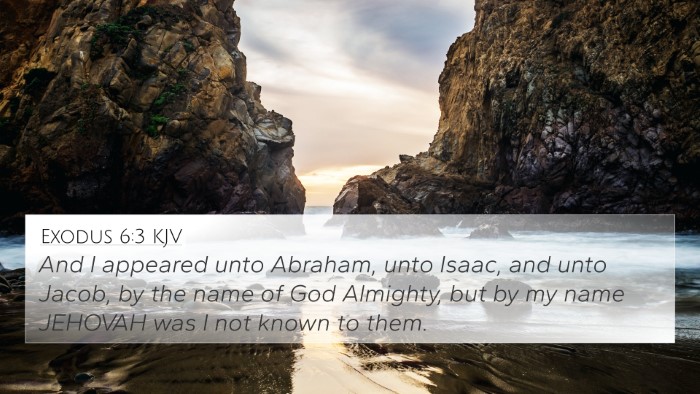
Exodus 6:3 (KJV) »
And I appeared unto Abraham, unto Isaac, and unto Jacob, by the name of God Almighty, but by my name JEHOVAH was I not known to them.
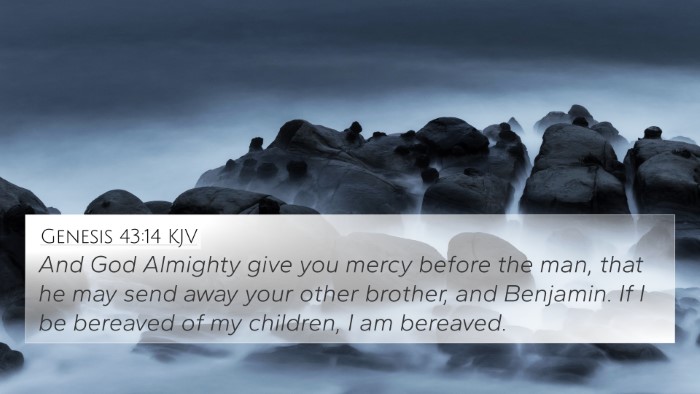
Genesis 43:14 (KJV) »
And God Almighty give you mercy before the man, that he may send away your other brother, and Benjamin. If I be bereaved of my children, I am bereaved.
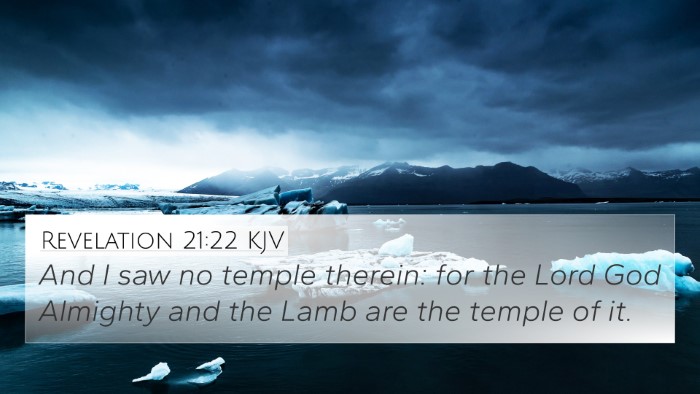
Revelation 21:22 (KJV) »
And I saw no temple therein: for the Lord God Almighty and the Lamb are the temple of it.
Ruth 1:20 Verse Analysis and Similar Verses
Meaning and Interpretation of Ruth 1:20
Verse Context: Ruth 1:20 states:
"And she said unto them, Call me not Naomi, call me Mara: for the Almighty hath dealt very bitterly with me."
Overview of Ruth 1:20
This verse captures a pivotal moment in the Book of Ruth, where Naomi expresses her grief and bitterness following the loss of her husband and sons. The name change from Naomi, meaning "pleasant," to Mara, meaning "bitter," signifies her deep sorrow and sense of loss. This verse opens a window to understanding the emotional depth of biblical characters and serves as a profound reflection on suffering and divine providence.
Key Insights from Commentaries
-
Matthew Henry Commentary:
Henry emphasizes the profound pain that Naomi experiences, noting that her change of name reflects a state wherein her personal misfortunes cloud her perception of God’s kindness. He articulates that Naomi's bitterness is a natural human response to overwhelming grief, a theme often echoed throughout the Scriptures as believers wrestle with the presence of suffering in their lives.
-
Albert Barnes' Notes:
Barnes points out the significance of names in Jewish tradition and the meaning behind Naomi choosing to be called Mara. He suggests that this renaming demonstrates a desperation that speaks to the depths of loss along with a theological insight regarding God's sovereignty in her suffering. Barnes also notes that this acknowledgement of bitterness serves as an ancient reflection of the community’s empathy toward individual suffering.
-
Adam Clarke's Commentary:
Clarke provides a linguistic analysis of the names involved, suggesting that the duality of Naomi's former and current names illustrates the stark contrast between her past joy and her present anguish. He explores how this passage aligns with overarching biblical themes of hope and restoration, eventually concluding with the arrival of Ruth in Naomi's life, which serves as a turning point towards healing and redemption.
Thematic Connections
Ruth 1:20 presents themes of sorrow, loss, and the potential for redemption that resonate throughout the Bible. These themes encourage a deeper look into various cross-references that illuminate how individual experiences of grief in the Scriptures connect to the broader theological narratives of hope and restoration.
Cross-References for Ruth 1:20
This verse can be linked with several other biblical texts that reflect similar themes:
- Job 3:11-12: Job curses the day of his birth, expressing profound sorrow similar to Naomi's lament.
- Psalms 34:18: "The Lord is near the brokenhearted and saves the crushed in spirit." This verse emphasizes God’s empathy towards those who suffer.
- Jeremiah 15:18: The prophet expresses feelings of bitterness in times of distress.
- Ecclesiastes 7:2: This verse highlights the value of attending a funeral over a feast, pointing to the inevitability of suffering.
- 2 Corinthians 1:3-4: These verses assure believers that God comforts us in all our troubles, giving us a purpose in our pain.
- Matthew 5:4: "Blessed are those who mourn, for they shall be comforted." This beatitude offers hope that mourning can lead to divine consolation.
- Hebrews 12:15: Warns against root of bitterness, similar to what Naomi expresses but also offers direction for healing.
Connections Between Bible Verses
Ruth 1:20 exemplifies the importance of witnessing personal suffering in the light of divine intervention. As Naomi transitions from Mara back to a life of hope through her relationship with Ruth, the biblical narrative emphasizes that bitterness, while a natural response, is not the end of the journey. Here are ways this verse interacts with broader themes in the Bible:
- Inter-Biblical Dialogue: Naomi's narrative reflects similar patterns in the lives of biblical figures facing adversity, echoing themes found in the stories of Joseph or Job, where suffering precedes restoration.
- Thematic Bible Verse Connections: The idea of renaming reflects a transformative journey, analogous to Saul becoming Paul in the New Testament after a significant encounter with God.
- Scriptural Cross-Referencing: Each mention of bitterness in the Bible invites reflection on God’s covenant faithfulness amid human suffering, reinforcing that loss can be a precursor to divine grace.
Tools for Bible Cross-Referencing
Understanding Ruth 1:20 and its implications can be aided by various tools:
- Bible Concordance: A helpful tool for locating words and themes in Scriptures.
- Bible Cross-Reference Guide: This guide will assist in finding related verses and enhancing understanding of Biblical narratives.
- Cross-Reference Bible Study: Engaging in studies that specifically look for connections between different parts of the Bible can deepen insights.
- Bible Reference Resources: Utilize resources that consolidate Biblical themes for deeper comprehension of verses like Ruth 1:20.
Conclusion
Ruth 1:20 opens a profound exploration of suffering, loss, and eventual redemption within the biblical narrative. The rich tapestry of the scriptures not only allows for this verse to resonate with individual human emotions but also connects to wider theological themes that prompt reflection, offering hope and healing in the midst of life's challenges.


